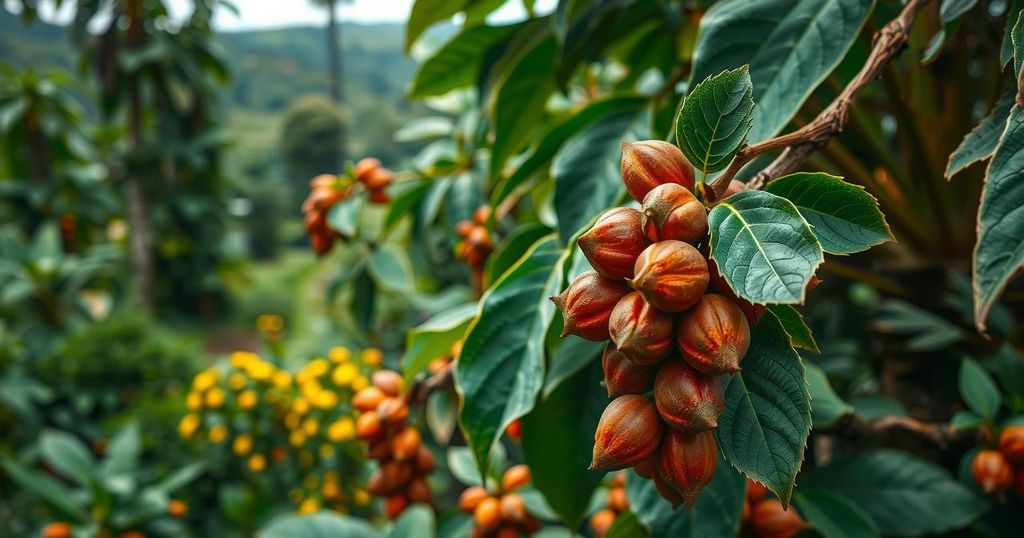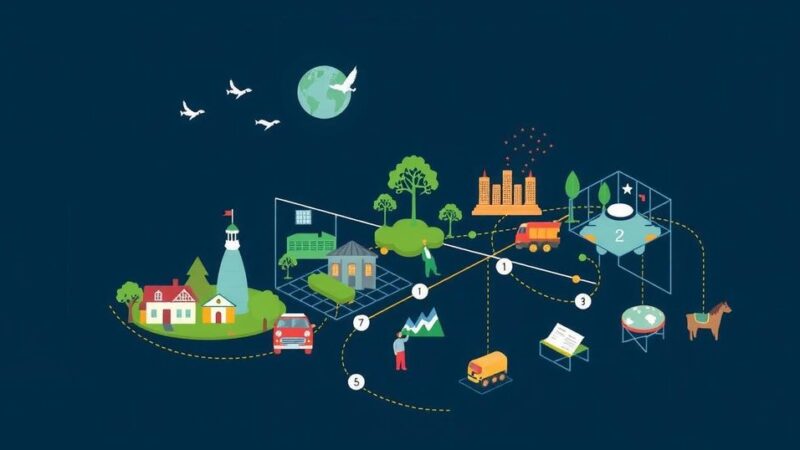This article discusses a pivotal study by the University of Göttingen on improving climate resilience in cocoa agroforestry systems in West Africa by focusing on the phenological cycles of shade trees. The research emphasizes the selection of shade tree functional groups based on their leaf cycles to enhance cocoa productivity while mitigating climate impacts. The study provides practical guidelines for fostering sustainable cocoa agriculture against the backdrop of climate change.
Agroforestry systems, which incorporate trees and shrubs into farming practices, are essential for sustaining cocoa production in West Africa, where approximately 70 percent of the world’s cocoa is cultivated. The increasing severity of climate change, particularly drought conditions, necessitates adaptation in agricultural practices. Research by the University of Göttingen has identified a transformative approach to enhancing climate resilience in cocoa agroforestry by focusing on the seasonal variations in leaf cycles, known as leaf “phenology.”
This study highlights how the phenological characteristics of shade trees are critical for managing climate impacts on cocoa productivity. The collaborative research involved international teams from multiple universities, including Göttingen, Munich, Tübingen, and Ghana’s Kwame Nkrumah University of Science and Technology. The researchers conducted a two-year field study in Ghana’s northern cocoa belt, analyzing the influence of shade tree leaf cycles on microclimatic stability, soil moisture, and cocoa yields.
The findings classified shade trees into seven functional groups with distinct effects on cocoa agroforestry, emphasizing the advantage of trees that completely shed leaves during the dry season, which aids in preserving soil moisture essential for cocoa during droughts. Conversely, trees shedding their leaves for shorter periods may lead to increased soil water demand, potentially harmful in extended dry seasons. Evergreen trees, while advantageous in moderate climates, may escalate fungal diseases under wetter conditions. Dr. Munir Hoffmann underscored the study’s practical application of focusing on functional groupings based on leaf phenology to assist in selecting appropriate shade trees for climate-resilient cocoa production.
Additionally, Dr. Issaka Abdulai, the lead author, discussed the significance of these findings, stating that judicious selection of shade trees can support both cocoa productivity and environmental stability. Professor Reimund Rötter also stated the research provides a pathway for designing agroforestry systems that are more resilient and sustainable, contributing to the longevity of cocoa farming in response to climate change.
This vital research received funding from the German Research Foundation (DFG).
The topic addresses the intersection of climate change and agricultural sustainability, particularly focusing on cocoa farming in West Africa. As one of the most significant regions for cocoa production globally, the findings underscore the importance of adapting farming practices in light of changing climate conditions. Given that cocoa is sensitive to environmental factors, implementing agroforestry systems with appropriate shade trees is critical for ensuring long-term viability and productivity.
In summary, the study delineates the importance of leaf phenology in selecting shade trees for cocoa agroforestry, which can enhance climate resilience and sustainability. The practical guidelines provided for selecting shade trees can significantly contribute to the stability of cocoa production amidst the challenges presented by climate change. As highlighted by the researchers, the determined strategies can not only protect cocoa yields but also promote environmental stability.
Original Source: www.eurekalert.org






